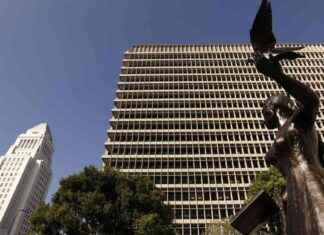Energy is scarce. Some cities therefore switch off the night lighting of historical buildings or monuments, for example Aachen. Even if it doesn’t save large sums of money: It’s about a sign.
Cologne (dpa/lnw) – Cities save energy: “Where possible, for example, street lighting is reduced, air conditioning systems are turned down, hot water consumption in public buildings is throttled,” said Helmut Dedy, Managing Director of the NRW City Council. Currently, the heating systems in public buildings are also being technically tested. This is important so that no energy is wasted during the heating season, said Dedy. Everyone is asked to save more energy quickly.
The measures also include no longer illuminating sights at night or only illuminating them for a shorter period of time. Most lighting systems use little energy. “But it is also a symbol that can be seen from afar that we all have to contribute something,” said the managing director of the NRW City Council. It is also a good idea to turn off water features or fountains at night.
The city of Aachen has announced that it will switch off the lights and pumps at all wells at night as a cost-saving measure. Historical buildings such as the town hall, the theater and individual monuments would only be illuminated for a few hours. The objects are already illuminated with energy-saving LED lights. “Nevertheless, it will set an example, because these places enjoy a lot of attention in the city,” the city said.
The most famous building in Aachen, the around 1200-year-old cathedral, has been illuminated for more than 20 years only from the beginning of dusk until 11 p.m. Even in the winter months, the cathedral remains dark in the morning, explained the cathedral chapter in Aachen. In Cologne, the cathedral chapter has not taken any initiative to no longer illuminate the Cologne Cathedral at night. But the redesign of the outdoor lighting has significantly reduced energy consumption.
The NRW City Council emphasized that measures such as switching off the lighting of fountains or buildings alone are not enough. “In the current situation, in which we have to expect energy bottlenecks in winter, it is important to set all the levers in motion now,” said Dedy. The cities do this by identifying and implementing energy-saving measures with the municipal utilities.






